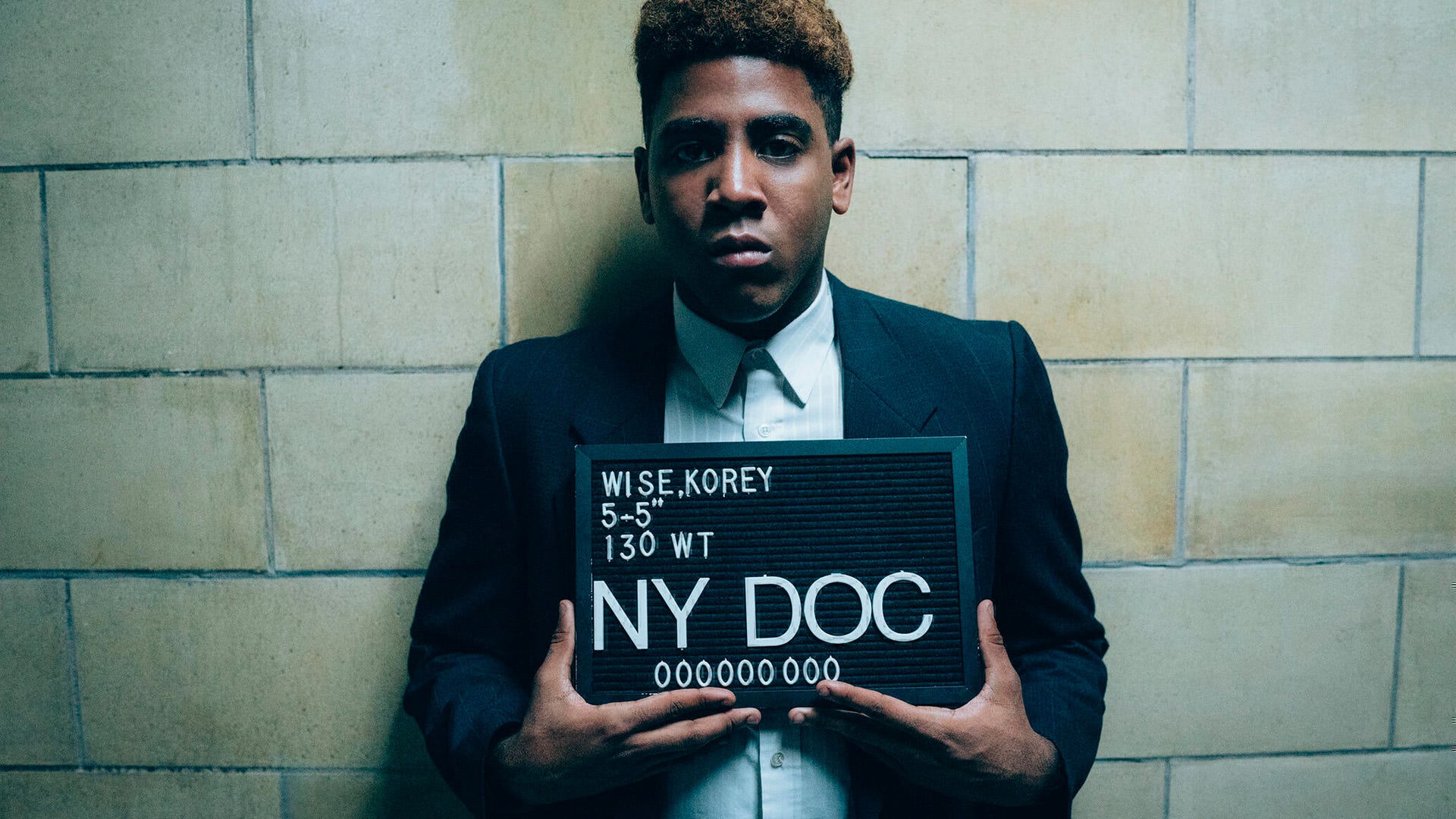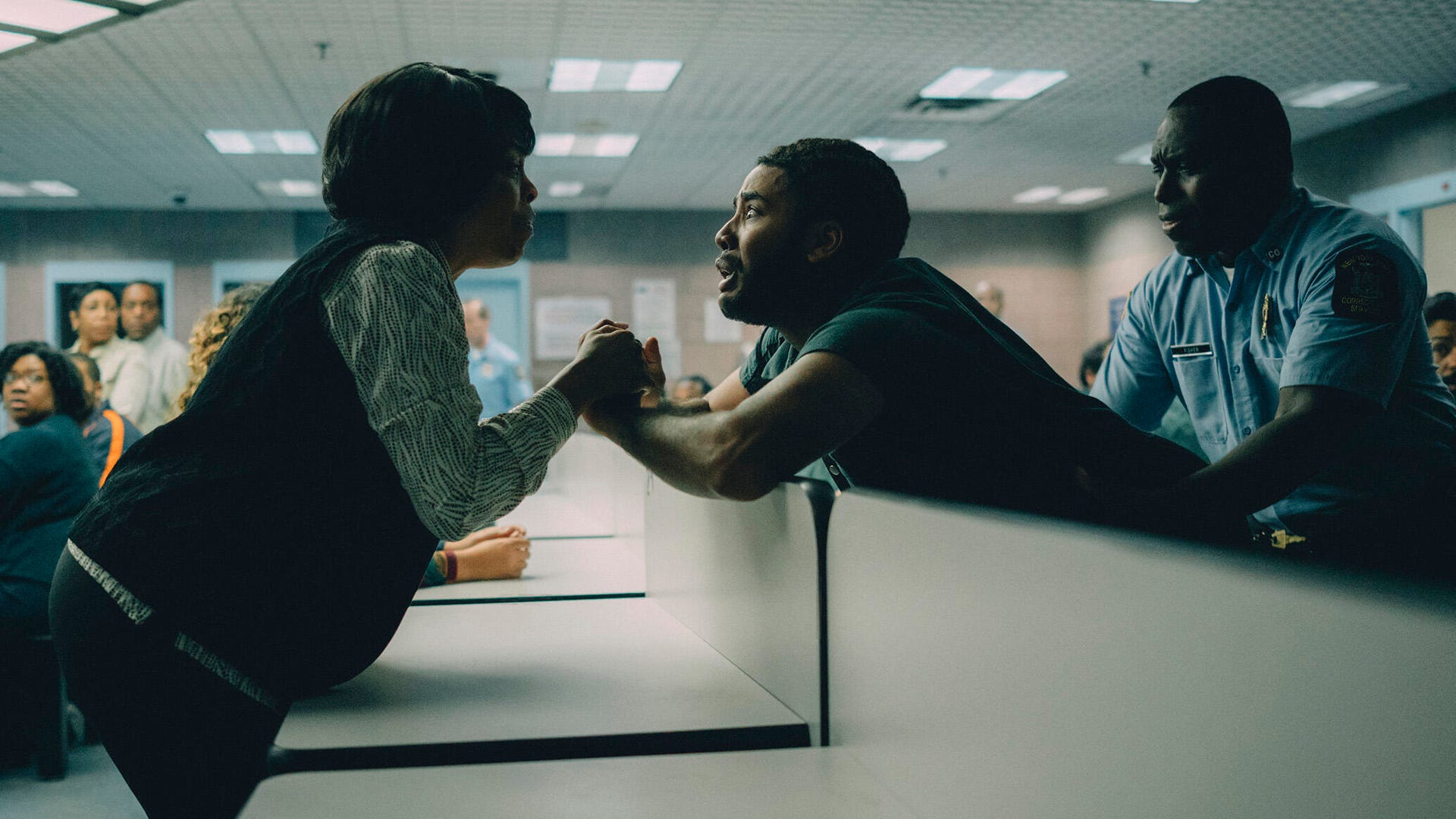Join or Sign In
Sign in to customize your TV listings
By joining TV Guide, you agree to our Terms of Use and acknowledge the data practices in our Privacy Policy.
When They See Us' Jharrel Jerome Is As Blown Away By His Performance As the Rest of Us
It's not bragging if it's true
OK, so this happened: Last week, about two hours after Jharrel Jerome's publicist confirmed what time I'd be speaking with the actor via phone the following day to discuss his turn in When They See Us, I saw him walking out of the same West Hollywood hotel I was walking into. I was stunned -- both because of the synchronicity of it and because, I'll be honest, I was a little starstruck. Writing about television means meeting celebrities frequently, so genuine moments of awe are rare and usually reserved for individuals who've left an indelible imprint on culture, or who've bodied the entire game with one piece of astonishing work. Jerome's turn as Korey Wise in Episode 4 of WTSU is just that.
He was jovial -- silly, even -- and when I asked for a photo (calm down, I don't cover foreign affairs) he quickly obliged, grinning and joking. His companion, a woman who didn't look over 30, offered to take it. "Come on grandma," he said to her. Still preoccupied with the uncanny coincidence unfolding, I was stuck on what he'd just said. "Wait, that's not really..." I murmured. "My grandma?!" he shot back, cackling at my dumb question. "Naw man!" he said, both of us laughing now before we went our separate ways.
Discover your new favorite show: Watch This Now!
Obviously, I'm aware that Jharrel Jerome is not really Korey Wise, the oldest of the five wrongly imprisoned men who are the focus of Ava DuVernay's masterful Netflix miniseries. But Jerome, particularly in the final episode of the series, lives in the anguish of Wise's experience so thoroughly that, shucks, I don't know, I suppose I foolishly expected him to still be wearing the gravitas of what he did on screen out in the street. Given that he's described the experience as painful -- DuVernay had grief counselors on set -- and viewers have been forming support groups to get through the material, the last thing I expected to learn about this 21-year-old thespian was that he's endearingly goofy. But he is. Upbeat and bouncy that day in West Hollywood, he was just as jovial during our interview the next day. And why shouldn't he be?

Jharrel Jerome, When They See Us
Atsushi Nishijima/Netflix"I'm not often feeling proud of myself," he said, en route to the airport. "I always feel like I've got to do better. But I do feel proud of myself on this one. I really put my heart and soul into this project. My mom can't stop sending me screenshots of tweets and things. I don't know, I'm just taking it as a blessing."
When They See Us Stars on Spotlighting the Real Lives Behind the Story
His humility likely comes as a result of having a strong family foundation and the awareness that he lucked into a profession that, growing up in the Bronx, hadn't seemed entirely viable at first. Although he wasn't aware of the Central Park Five story before DuVernay posted about it and he did his homework, Jerome was raised by relatives who knew that, statistically speaking, the Afro-Latino boy from the Bronx was at risk of becoming a character in a real horror story akin to the one Korey, Antron, Yusef, Raymond, and Kevin miraculously lived through.
"For me, luckily I was surrounded by love and family and appropriately strict parents," he said. "But that story was a story among other stories, a learning lesson for a young black boy: Don't go out late, [watch] police officers. I know people who'd been through things similar, who had been arrested and we don't know why. It's a common story. It's in the air." Going to the famed Fiorello H. LaGuardia High School of Music, Art, and Performing Arts in Manhattan gave him structure, an outlet for his gifts, and purpose, but the shadow of what could happen -- a familiar dread for black and brown boys of a certain age -- was ever-present.

Jharrel Jerome, When They See Us
Atsushi Nishijima/NetflixThat's one of the reasons he's most proud of his own work -- because it gets Korey Wise's story out into the public consciousness, along with the knowledge that, while extreme, the injustice inflicted on Wise isn't at all an anomaly. And hanging out with the real Korey Wise made Jerome determined to get his story right. "It weighed on me so heavy. The fact that he's alive and breathing, I get to see him and hug him -- I wanted to do this man justice. On top of that, working with someone like Ava who is absolutely a genius, that pressure was on. But both of them were so comforting to me; I was able to stay grounded."
DuVernay told Jerome she didn't need him to become Korey Wise but to embody his essence, which for the actor meant embarking on a multi-step process to nail Wise's idiosyncrasies, including a distinctive speech pattern and physical mannerisms. Wise had a hearing problem that went untreated, which likely contributed to his decision to skip a lot of school as a teenager. "I spent two months with a vocal coach who taught me to to slow my speech, to find the lower resonance," Jerome said. "He also has a specific slurred speech pattern. Adopting that was my No. 1 job. Once I got that down, I felt comfortable putting my body all into who he is, which led to my feet, which led to my mind transforming."
Anyone who witnessed him own the screen for those 88 minutes can attest that "transforming" is not an exaggeration: Jerome is desperate and deranged in solitary confinement, having hallucinatory conversations with loved ones; he's meek and child-like with the sole guard who shows him any humanity; he's scorched-earth hysterical as he is pulled away from his mother on what we assume to be his last time seeing her ever. It's a crushing, bestial, ferociously alive performance, and a standout of the season. Jerome said that Wise, who much preferred to walk Harlem eating pizza or buy the young actor sneakers than talk about that period of his life, had only one thing to say about his portrayal. "He put his hands on my arm, he nodded, and he said, 'You did good.' It was all I needed because when you're talking with him about the themes of his life he gets much quieter than if you talk about Big Pun."

Niecy Nash, Jharrel Jerome, When They See Us
Atsushi Nishijima/NetflixOur call drops a few times, and with Jerome on the way to South Carolina to begin filming another season of Mr. Mercedes, I ask him one more question I hadn't prepared. Say you get nominated for an Emmy and you win it, where would you put it?
"Wow," he said. "This is the first time I've been asked this. I think a nomination..." He goes quiet. I can't tell if the call has dropped, if he's crying or just thinking. He finally speaks. "I think it would be a gift from my grandfather who I lost three months before I got cast in Moonlight. I think he's guiding me; he always dreamed of me having this. I'm so proud to be part of this story -- it's so much bigger than me. I wouldn't use that nomination to brag or think I'm successful. Hopefully I can inspire people and show other young black and Latino, Dominican kids we can be anything we want."
When They See Us is streaming now on Netflix.
